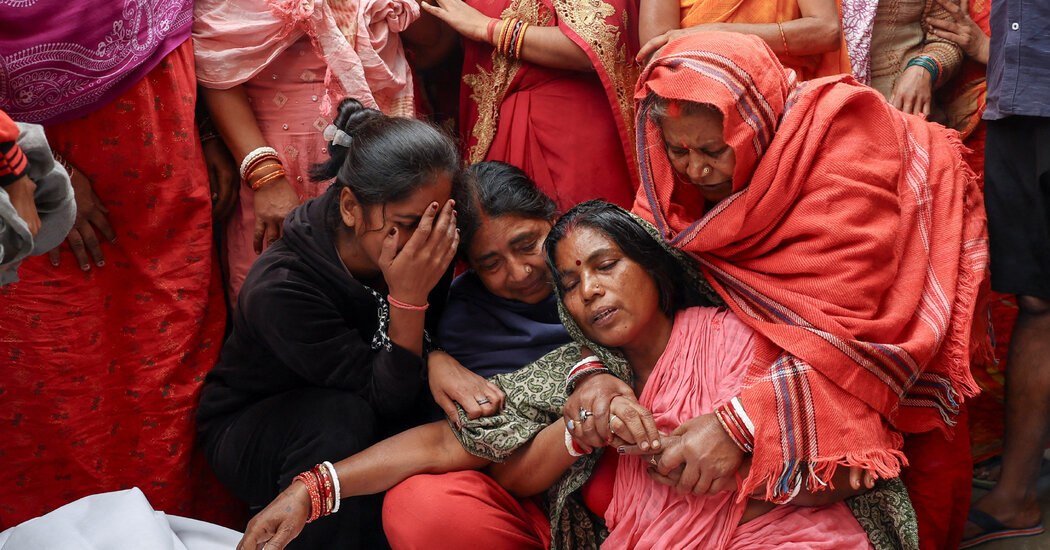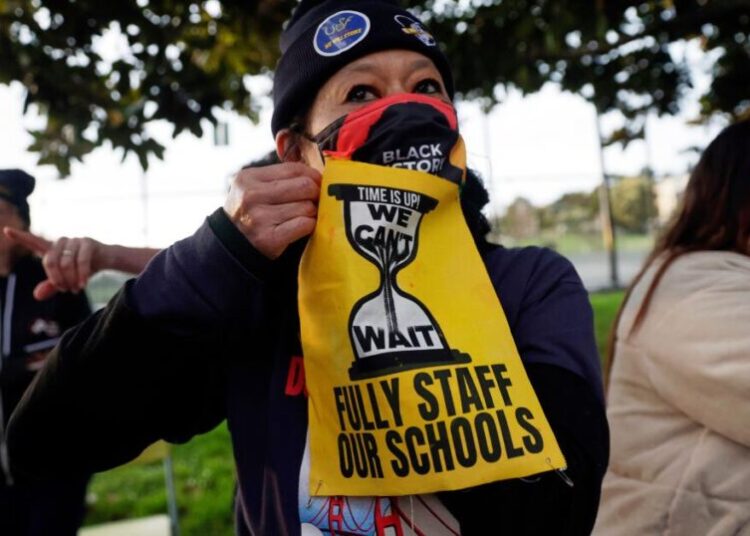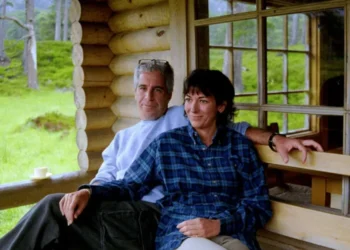Twin bombings in a tense region
This week’s bombings in the capital cities of India and Pakistan were just a day apart. They were nearly identical in damage and impact — about a dozen people were killed in each blast.
There was nothing to directly connect the attacks. We don’t know yet who is responsible for the attack in India. A faction of the Pakistani Taliban claimed responsibility for the attack in Islamabad.
But tensions between India and Pakistan are running so high that the explosions have been enough to raise worries that the two neighboring nuclear powers could again start a cycle of escalation like the one that unfolded in May. It’s a sign of just how on edge the region is — and also, perhaps, of how little it could take to spiral into violence again.
A more restrained India
India has long accused Pakistan of providing sanctuary and support to militants who wage violence on Indian territory. In recent years, Pakistan has made similar claims against India, saying that the government has a hand in supporting the forces fighting the Pakistani state.
The regional dynamics have only grown more volatile and complicated since the Taliban returned to power in Afghanistan. The government of Pakistan supported the Taliban during its 20-year insurgency against the U.S.-backed republic in Kabul. Now, though, Pakistan accuses the Taliban of working with India to back militants who are staging attacks in Pakistan.
Indian officials have been measured in their statements since the deadly blast on Monday in New Delhi, which killed at least nine people and wounded 20 others near a metro station in a crowded part of the old city.
That’s in contrast to how much India raised the stakes this spring, after carnage at a tourist picnic spot in Kashmir, part of a region disputed by India and Pakistan. Gunmen identified Hindu tourists by their religion before killing them in front of their families, leading the prime minister, Narendra Modi, to blame Pakistan for harboring the attackers and to launch military strikes against its neighbor. Modi then declared that any future terror attack would be seen as an act of war.
India is investigating the Delhi blast as an act of terrorism. But figuring out who is responsible could be complex. India has been on the radar of other terrorist groups, including the Islamic State.
Pakistan under pressure
The blast has shattered New Delhi’s sense of safety, increasing pressure on Indian officials.
The same could be said for Pakistan, where at least 12 people were killed and 27 others wounded on Tuesday around lunchtime in a suicide bombing near the entrance of a heavily guarded courthouse in Islamabad. The Pakistani government has already been under pressure from a relentless wave of attacks by militants in its western regions near the Afghan border.
On Pakistani television and in government statements, the Afghan Taliban government is now mostly referred to as “India-backed.” Last month, Pakistan struck two Afghan cities, including its capital, Kabul, while the Afghan foreign minister was visiting India.
Within hours of the Islamabad attack on Tuesday, Pakistan’s prime minister, Shehbaz Sharif, accused India of having a hand in the rising violence. Sharif said the attack, as well as an assault on a military college in the country’s west on Monday, had been carried out “under Indian instigation.”
India’s foreign ministry rejected the claim as “baseless and unfounded.”
Pakistan’s political and military leaders have ramped up inflammatory rhetoric against India since their four-day clash in May. That face-off gave a popularity boost to Pakistan’s army chief, Asim Munir, who yesterday secured expanded constitutional powers and lifelong legal immunity.
Even though channels of communication and diplomacy between the two countries are at their lowest level in years, some are still urging calm. Maleeha Lodhi, a former Pakistani ambassador to the U.S. and the U.N., told us that while tensions remain high, she didn’t think the two countries were on the brink of something ominous.
But the spring conflict showed how quickly things could escalate: India and Pakistan were on the verge of full-blown war before President Trump pressured the two sides to a cease-fire. And when the cease-fire was agreed to, Modi said the operations against Pakistan were merely paused, not concluded.
MORE TOP NEWS
Epstein emails allege Trump knew of his conduct
Democrats in Congress released emails yesterday in which Jeffrey Epstein, the convicted sex offender who died in prison, wrote that President Trump had “spent hours at my house” with one of the victims of his sex trafficking ring. In one message, Epstein asserted that Trump “knew about the girls.” You can read the emails here.
Hours later, Republican lawmakers released their own trove of 23,000 pages of documents from Epstein’s estate. Republicans have been trying to protect Trump, who was a friend of Epstein’s until the two men had a falling out. But they are also facing a demand from voters for a complete disclosure of Epstein’s interactions with powerful men.
Trump has emphatically denied any involvement in or knowledge of Epstein’s sex-trafficking operation. The White House press secretary yesterday accused Democrats of trying to “create a fake narrative to smear President Trump.”
OTHER NEWS
- Israel said it had reopened a border crossing into northern Gaza, a longstanding request from organizations trying to bring more aid into the territory.
- Japan’s prime minister, Sanae Takaichi, drew criticism for scheduling a meeting at 3 a.m. in a country scarred by “death from overwork.”
- Israel’s president said Trump sent him a letter asking him to pardon Prime Minister Benjamin Netanyahu, who is on trial for corruption.
- This video shows the moment a newly built bridge in Sichuan, China, collapsed, sending huge plumes of dust into the air.
- Forty-two people, many of them fleeing the war in Sudan, were presumed dead after their boat capsized near Libya this month.
- Algeria’s president pardoned Boualem Sansal, an Algerian-French writer who was sentenced to five years in prison on accusations of undermining national security.
SPORTS
Football: 1,024 players and 149 referees were suspended in a Turkish betting scandal.
Cycling: Belgian star Wout van Aert talked about his win in the final stage of the Tour de France.
Basketball: Who are the top 25 N.B.A. players of the 21st century?
WORDS OF THE DAY
Green fairies
— What New Zealand’s medical marijuana growers were called before legalization. One of them, nicknamed “Gandalf,” now faces criminal charges in a case that has stirred a national debate.
MORNING READ
Who pays when A.I. is wrong?
Courts in the U.S. are trying to sort out that question. At least six defamation cases have been filed in the past two years over content produced by A.I. tools. The plaintiffs argue that chatbots not only created and published false information, but continued putting it out even after the companies were made aware of problems. Read more.
AROUND THE WORLD
How they’re trying to live longer … in China
China has made longevity a national priority, pouring billions into research and commercial endeavors despite sometimes shaky science and extravagant claims.
At a recent gathering in Shanghai, businesses hawked anti-aging creams and potions, goji berries, cryogenic and hyperbaric chambers and other devices that are supposed to slow aging. SuperiorMed, a health care company, runs what it says is the world’s biggest “longevity hospital” in Chengdu and promotes “immortality islands,” though it acknowledges that they do not exist yet. Lonvi, a longevity start-up in Shenzhen, has developed anti-aging pills based on a compound found in grapeseed extract, which some studies have linked to an increase in the life span of mice. Read more.
REPORTER RECOMMENDATIONS
Rome
Rome can be loud, messy and crowded. But it can also be graceful, especially in the peach-pink light of late fall. Emma Bubola, who grew up in Italy and covers the country, sent us her tips to enjoy the city.
Watch a movie at the Nuovo Sacher cinema, named after the famous Austrian cake by the cinema’s founder, the Roman director Nanni Moretti, who has a passion for desserts. The cinema offers a solid selection of movies, plus a small terrace where it serves Sacher torte.
Ring the monastery’s doorbell at Santa Cecilia in Trastevere. Once inside, buy a ticket from the resident Benedictine nuns, and then climb the creaking stairs to see the Last Judgment fresco by Pietro Cavallini, a breathtaking masterpiece. This is the only way to see it. The nuns also sell homemade rose water.
Buy socks from a vendor in the Porta Portese secondhand market, also in Trastevere and open on Sundays. The silky socks come in pink, lilac, light blue and apple green and cost only a few euros.
RECIPE
Kelewele, a popular spice mix from Ghana, is a blend of garlic, ginger, nutmeg and cloves that usually coats fried plantains in a side dish. This recipe applies kelewele to pork chops, pears and aromatic shallots, which can be served with mashed potatoes.
WHERE IS THIS?
Where do you think these houses are?
- Rakhine State, Myanmar
- The Tigray Highlands, Ethiopia
- Sumba, Indonesia
- Bougainville, Papua New Guinea
Here are today’s Spelling Bee, Mini Crossword, Wordle and Sudoku. Find all our games here.
You’re done for today. See you tomorrow! — Katrin
We welcome your feedback. Send us your suggestions at [email protected].
Katrin Bennhold is the host of The World, the flagship global newsletter of The New York Times.
The post South Asia on Edge appeared first on New York Times.




